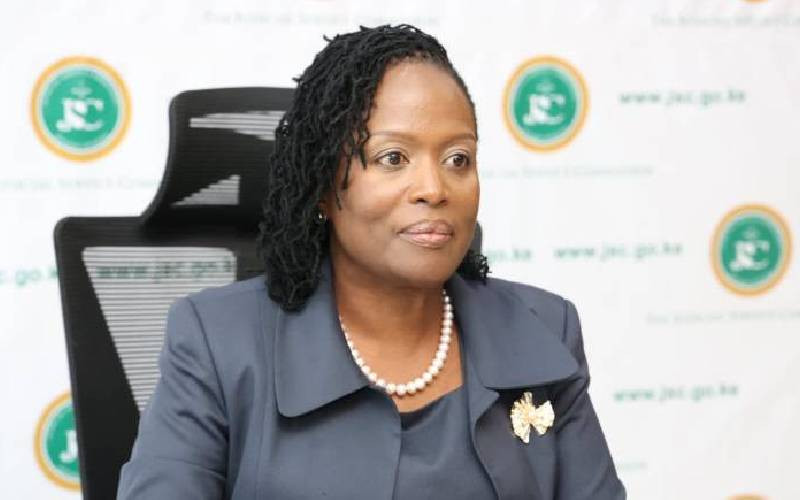
On Monday this week, the Judicial Service Commission (JSC) interviewed seven candidates for the position of Chief Registrar of the Judiciary (CRJ) in a bid to replace long-serving former CRJ Anne Amadi. All the candidates were interviewed on the same day, with the first interview starting in the morning and the last one taking place late at night.
Although each candidate was supposed to be interviewed for an hour, some interviews took as long as two hours or more. The following day, the JSC announced Frida Mokaya Boyani as the candidate chosen to be the next CRJ.